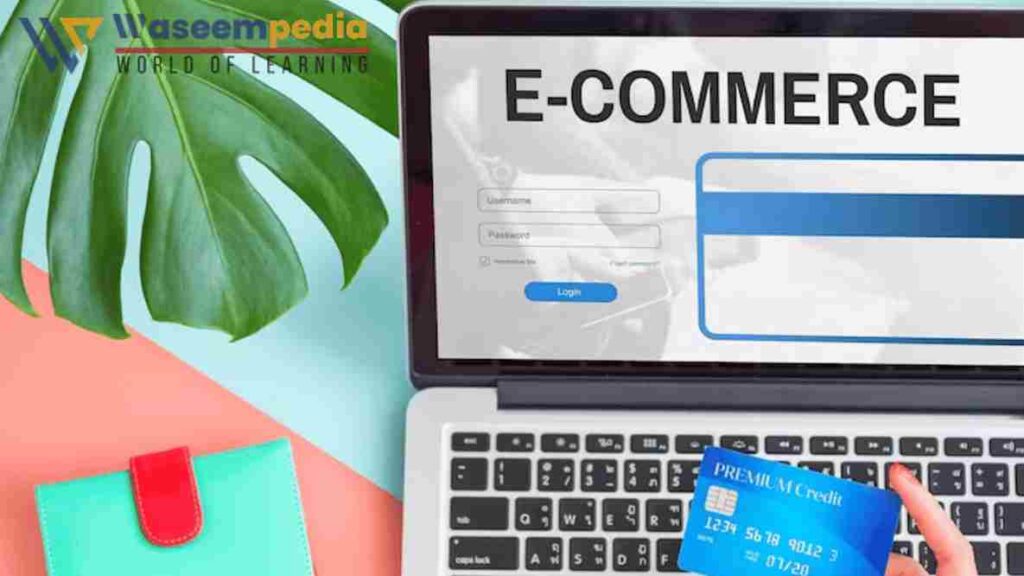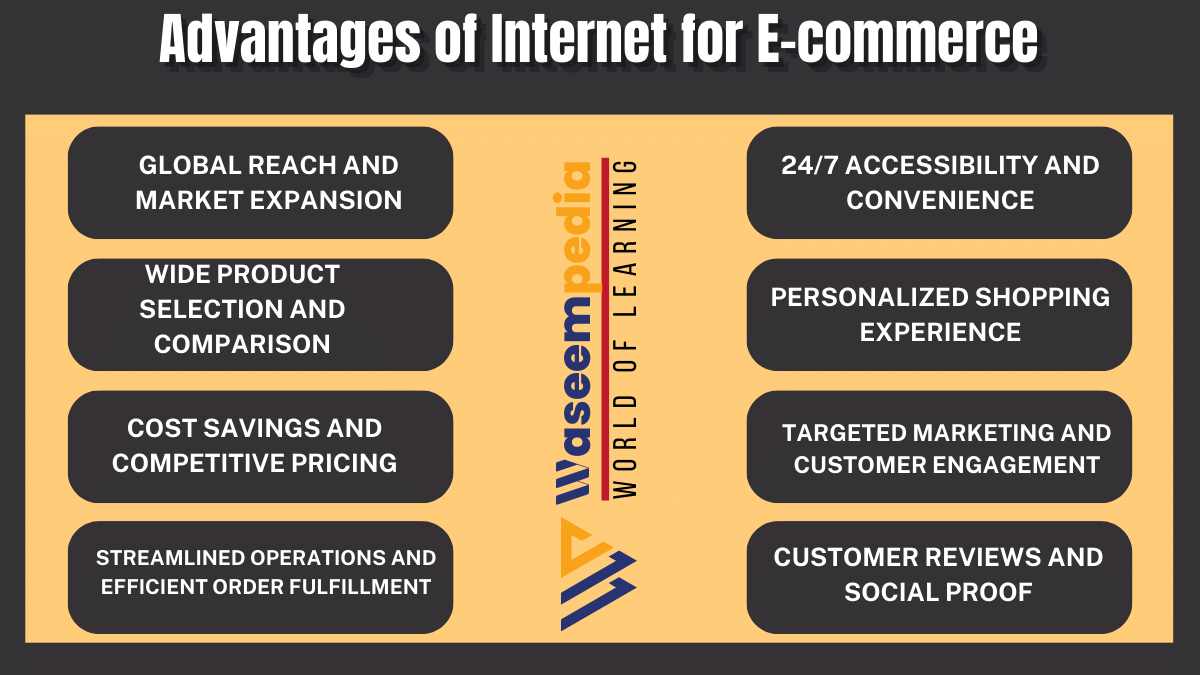With the Advantages of the Internet, buying and selling products online has become increasingly popular, offering convenience, accessibility, and a host of other advantages to both businesses and consumers. In this article, we will explore the advantages of the Internet for e-commerce and how it has revolutionized the way we shop.
E-commerce has emerged as a powerful force in the retail industry, enabling businesses to reach a global audience and consumers to shop conveniently from anywhere. The Internet has played a pivotal role in the growth and success of e-commerce, offering a wide range of advantages that have reshaped the way we buy and sell products.

The Internet has revolutionized e-commerce, offering numerous advantages that have transformed the way we shop. From global reach and market expansion to convenience, personalization, and cost savings, the Internet has empowered businesses and consumers alike.
As e-commerce continues to evolve, businesses must embrace the power of the Internet to stay competitive and deliver exceptional online shopping experiences.
10 Advantages of Internet for E-commerce
10 Advantages of Internet for E-commerce are as following
1. Global Reach and Market Expansion
One of the most significant advantages of the Internet for e-commerce is the ability to reach a global audience. With an online presence, businesses can expand their market beyond geographical boundaries and tap into a vast customer base. The Internet eliminates the limitations of physical storefronts, allowing businesses to showcase their products to potential customers worldwide.
2. 24/7 Accessibility and Convenience
The Internet enables businesses to operate 24/7, providing round-the-clock accessibility to customers. Unlike traditional brick-and-mortar stores with fixed operating hours, online stores are always open. This convenience allows customers to shop at their own pace and preferred time, accommodating busy schedules and different time zones.
3. Wide Product Selection and Comparison
E-commerce platforms offer an extensive range of products, providing customers with a wide selection to choose from. Customers can explore various brands, compare prices, read reviews, and make informed purchasing decisions. The Internet empowers customers to research and find the exact products they need, without limitations imposed by physical store inventories.
4. Personalized Shopping Experience
Internet-based e-commerce allows businesses to personalize the shopping experience for individual customers. Through data analytics and tracking technologies, businesses can gather information about customer preferences, purchase history, and browsing behavior. This data enables businesses to offer personalized recommendations, targeted promotions, and customized shopping experiences that cater to individual needs and preferences.
5. Cost Savings and Competitive Pricing
E-commerce eliminates many of the overhead costs associated with traditional retail, such as rent, utilities, and staffing. Businesses can pass on these cost savings to customers, offering competitive pricing and attractive discounts. Customers benefit from cost savings and the ability to find better deals online, making e-commerce an economical choice for both businesses and consumers.
6. Targeted Marketing and Customer Engagement
The Internet provides powerful tools for targeted marketing and customer engagement. Businesses can leverage digital marketing strategies, such as search engine optimization (SEO), social media advertising, and email marketing, to reach their target audience effectively. Interactive features like live chat support, customer reviews, and social media engagement foster meaningful interactions and build customer trust and loyalty.
7. Streamlined Operations and Efficient Order Fulfillment
Internet-based e-commerce streamlines business operations and improves order fulfillment processes. Automated inventory management systems, integrated logistics solutions, and order tracking capabilities enhance efficiency and reduce errors. Businesses can manage inventory, process orders, and ship products seamlessly, ensuring a smooth and reliable shopping experience for customers.
8. Customer Reviews and Social Proof
The Internet allows customers to share their experiences and opinions through customer reviews and ratings. These reviews serve as social proof, influencing the purchasing decisions of other customers. Positive reviews and testimonials can build trust and credibility for businesses, while constructive feedback can drive improvements in products and services.
9. Seamless Payment Options and Security
E-commerce platforms offer a wide range of secure and convenient payment options. Customers can choose from credit cards, debit cards, e-wallets, and other digital payment methods. The Internet has paved the way for secure online transactions, utilizing encryption and other security measures to protect customer data and ensure safe payments.
10. Data Analytics and Insights
The Internet generates vast amounts of data, and e-commerce businesses can leverage data analytics tools to gain valuable insights. By analyzing customer behavior, purchase patterns, and market trends, businesses can make data-driven decisions to optimize their strategies, improve customer experiences, and drive sales growth.
Related FAQ’s
How has the Internet transformed the retail industry?
The Internet has transformed the retail industry by enabling online shopping, global market reach, personalized experiences, and convenient access to a wide range of products. It has shifted the dynamics of retail, offering businesses new opportunities to connect with customers and expand their market presence.
How is Internet used in e-commerce?
The internet fuels e-commerce, where customers use their own devices to access online stores, browse products or services, and place orders.
What are advantages of Internet?
The advantages of the Internet include access to vast information, instant communication, online services, educational resources, entertainment, and opportunities for remote work and social networking.
What is the impact of e-commerce and Internet?
Impact of e-commerce and the Internet includes transforming business models, global market reach, convenience for customers, and technological advancements in various sectors.
How social media impact e-commerce?
Social media impacts e-commerce by driving brand awareness, facilitating customer engagement, enabling targeted advertising, and influencing purchase decisions through user-generated content and recommendations.

